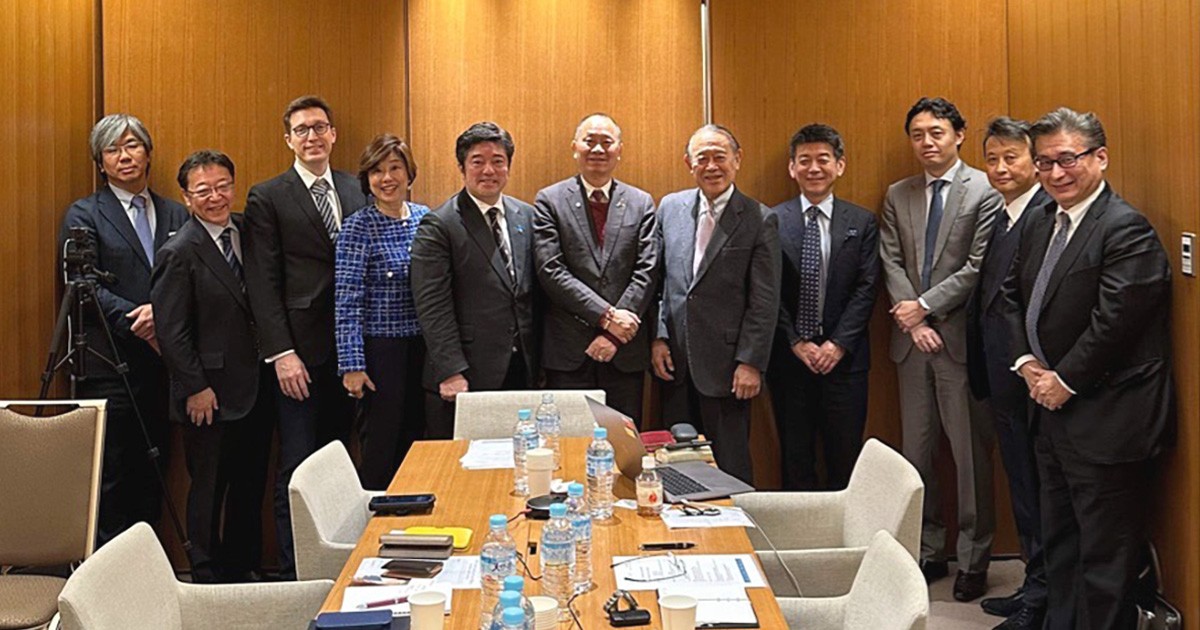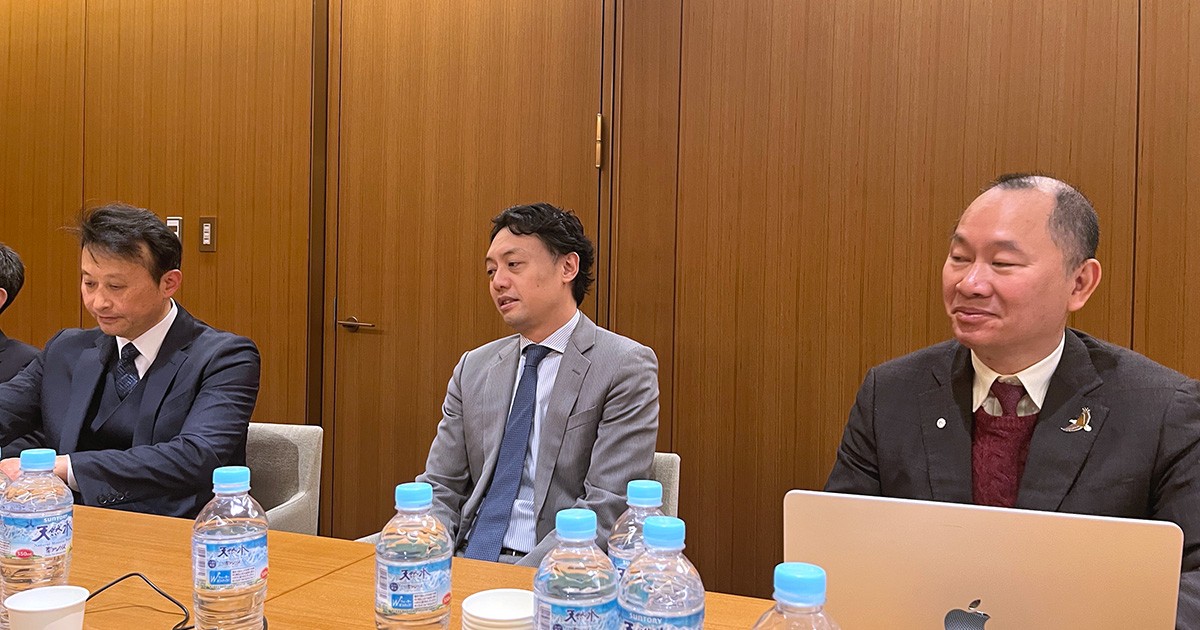Originally published by the Shinzo Abe Initiative on LinkedIn.
Recently, a groundbreaking dialogue on AI governance took place at Hotel Okura Tokyo under the moderation of Ichiro Fujisaki, the esteemed former Japanese Ambassador to the USA. The discussion focused on responsible governance regarding AI ethics, safety, and accessibility, emphasizing the Four Pillars for Peace and Security, which include politics, science and technology, business, and the peaceful use of drones.
The conference opened on a high note with remarks from Nobue Mita, the Japan representative of Boston Global Forum, setting the stage for a series of enlightening presentations. Tuan Nguyen, the visionary CEO of Boston Global Forum, introduced AIWS Trade Stack and expanded on the importance of the foundational Four Pillars for Peace and Security, which paved the way for Sanae Takaichi, Japanese Minister of State for Economic Security, and the 2023 World Leader in AIWS to discuss Japan’s pivotal role in this global endeavor.
“Good morning everyone, I am Sanae Takaichi, and I am delighted to celebrate the 3rd Shinzo Abe Initiative Conference hosted by the Boston Global Forum Japan, which is taking place today.
Technological innovations such as generative AI bring a variety of benefits, including improving productivity and addressing worker shortages. However, they also pose serious risks, such as the spread of disinformation.
In Japan, the AI Safety Institute was established last month as an organization to study AI safety evaluation methods. Additionally, AI business guidelines, encompassing essential principles for AI companies to adhere to, are scheduled to be published next month.
I would like to express my sincere appreciation to CEO Tuan and everyone at the Boston Global Forum for their significant contributions over the years. I also extend my best wishes for the continued growth and success of the Boston Global Forum and its participants. Thank you.”
A highlight of the event was the first agenda item, featuring luminaries like former Senior Vice Minister of Defense, Yasuhide Nakayama, former British Ambassador to Japan, Paul Madden CMG, and Professor Yuichi Hosoya of Keio University, who shared insights on the collective efforts of the USA, Japan, EU-UK, and India towards world peace and security in 2024. Adding a valuable perspective to this discussion, Professor Alex ‘Sandy’ Pentland of MIT shared his insights on how data-driven approaches and computational social science can aid in understanding and enhancing international collaboration. His work at the MIT Human Dynamics Laboratory and the World Economic Forum Big Data and Personal Data initiatives underscores the importance of leveraging big data and personal data for societal benefits, including security and peace.
Nakayama elaborated on the four pillars:
- Politics: We aim for conflict resolution and peacebuilding through the “The Global Leaders Peace Community”, promoting dialogue and mediation to maintain global peace and security.
- Science and Technology: By forming a community of scientists and engineers, we direct the power of science and technology towards peaceful purposes, understanding the causes of conflicts scientifically and leveraging this knowledge for peacebuilding.
- Business: We create a community of business leaders and entrepreneurs to use economic power to foster social progress and peace, emphasizing ethical business practices and social responsibility.
- Drone Technology: Through the “Drones for Peace Community”, we aim to manage the potential risks while utilizing drones for humanitarian, surveillance, and disaster relief purposes. These four pillars interact to contribute to peace and stability.
This discussion illuminated the necessity of collective efforts worldwide in these frenetic and dynamic times, setting the stage for an array of perspectives, with an additional layer of depth provided by Peter Landers‘ journalistic insights. As the Tokyo bureau chief for The Wall Street Journal, Landers brings a unique viewpoint on how data and technology impact international relations and security, bridging the gap between technological advancements and their real-world implications.
Tsuneo “Nabe” Watanabe and Bonji Ohara, as fellows at the Sasakawa Peace Foundation / 公益財団法人 笹川平和財団, offered expert analyses and strategies aimed at fostering stability and encouraging inclusive solutions, underscoring the think tank’s commitment to impactful, peaceful engagements worldwide. The conference also spotlighted innovation and leadership, presenting the Shinzo Abe Award for excellent startups. Announced by Tuan Nguyen, the award seeks to honor a leader exemplifying the spirit and vision of the late Prime Minister Shinzo Abe. The winner will be revealed at a forthcoming event at Harvard University later this month and will be presented the award at a special ceremony in Nha Trang in June.
In a subsequent session that included Professor Yutaka Matsuo of Tokyo University and Dr. Kazuo Yano, CEO of Happiness Planet, the conversation expanded with insights from Professor Hiroshi Ishiguro of Osaka University. Professor Ishiguro introduced the concepts of Perceptual Information Infrastructure and Intelligent Robot Infrastructure, highlighting his pursuit of technologies that enable robots to understand and interact meaningfully with the human world. This exploration into computer vision, robotics, and artificial intelligence complemented the broader discussion on AI ethics and natural AI, emphasizing the need for ethical considerations in AI’s role within society and its interactions with humans.
Unpacking the Complexities of AI Governance
The Shinzo Abe Initiative Conference 2024 stood out as a pivotal forum for tackling the complex challenges of AI governance. It brought together a remarkable assembly of Japanese dignitaries, including journalists, professors, and members of parliament, for an in-depth exploration of AI ethics, safety, and accessibility. Enriching this dialogue, the newly appointed Japanese Ambassador to Hungary, Hikariko Ono, contributed from Budapest, highlighting the necessity of global synergy in tackling the multifaceted aspects of AI governance and its worldwide implications.
Challenges and Risks, Benefits and Realities
The conference acknowledged the myriad challenges and risks that accompany the advancement of AI, including privacy concerns, security risks, potential misuse, and ethical dilemmas. The discussions recognized the need for a nuanced approach to address these issues, emphasizing the importance of embedding ethical considerations from the outset. Despite the hurdles, the event highlighted the transformative potential of AI across various sectors. It placed an emphasis on the importance of international collaboration in developing standards and regulatory frameworks that balance innovation with ethical considerations and human rights.

Prof. Yuichi Hosoya, Tsuneo Watanabe, David Lovejoy, Nobue Mita, Yasuhide Nakayama, Tuan Nguyen, Ichiro Fujisaki, Dr. Kazuo Yano, Prof. Yutaka Matsuo, Bonji Ohara, and Okabe Noboru
Moving Forward on the Path to Global Cooperation
A key takeaway was the critical need for transparency and trust among all stakeholders in navigating the complexities of AI development, deployment, and governance. The conference concluded with a call for continued dialogue and mutual support, inviting more countries to join this global initiative. It marked a hopeful step towards a promising future where AI is harnessed for the greater good.
Technological innovations such as generative AI bring a variety of benefits, including improving productivity and addressing worker shortages. However, they also pose serious risks, such as the spread of disinformation. — Sanae Takaichi

